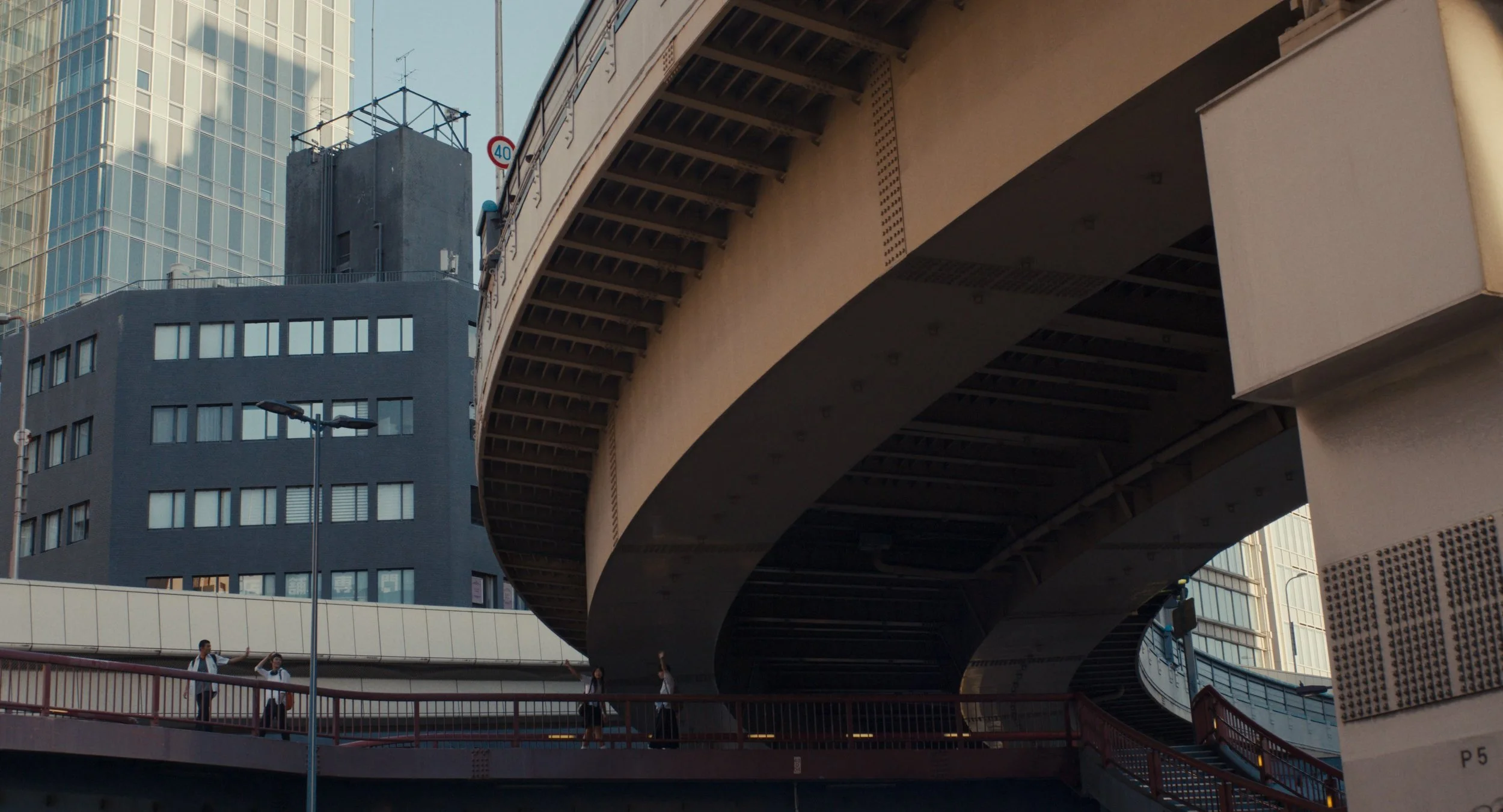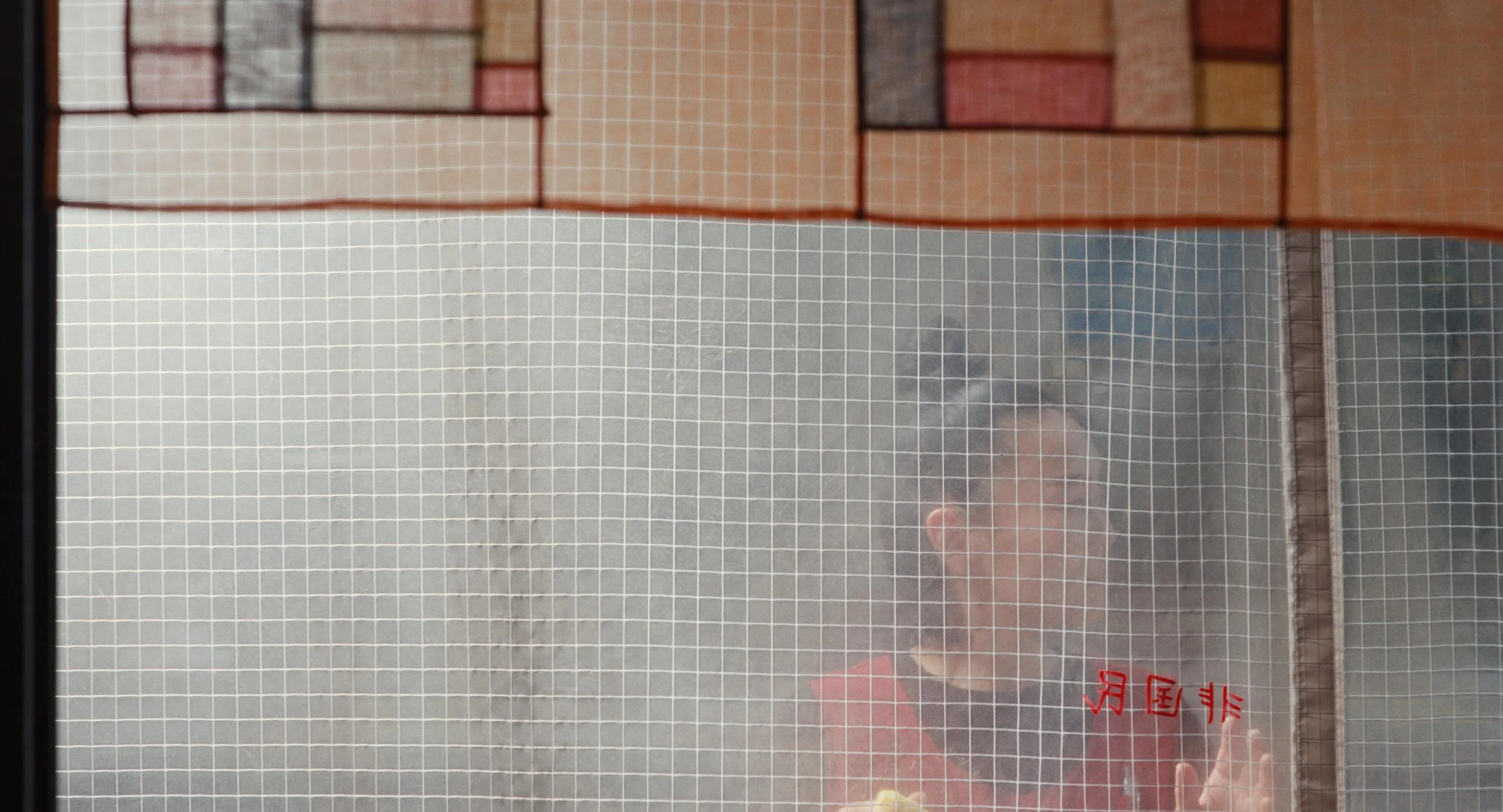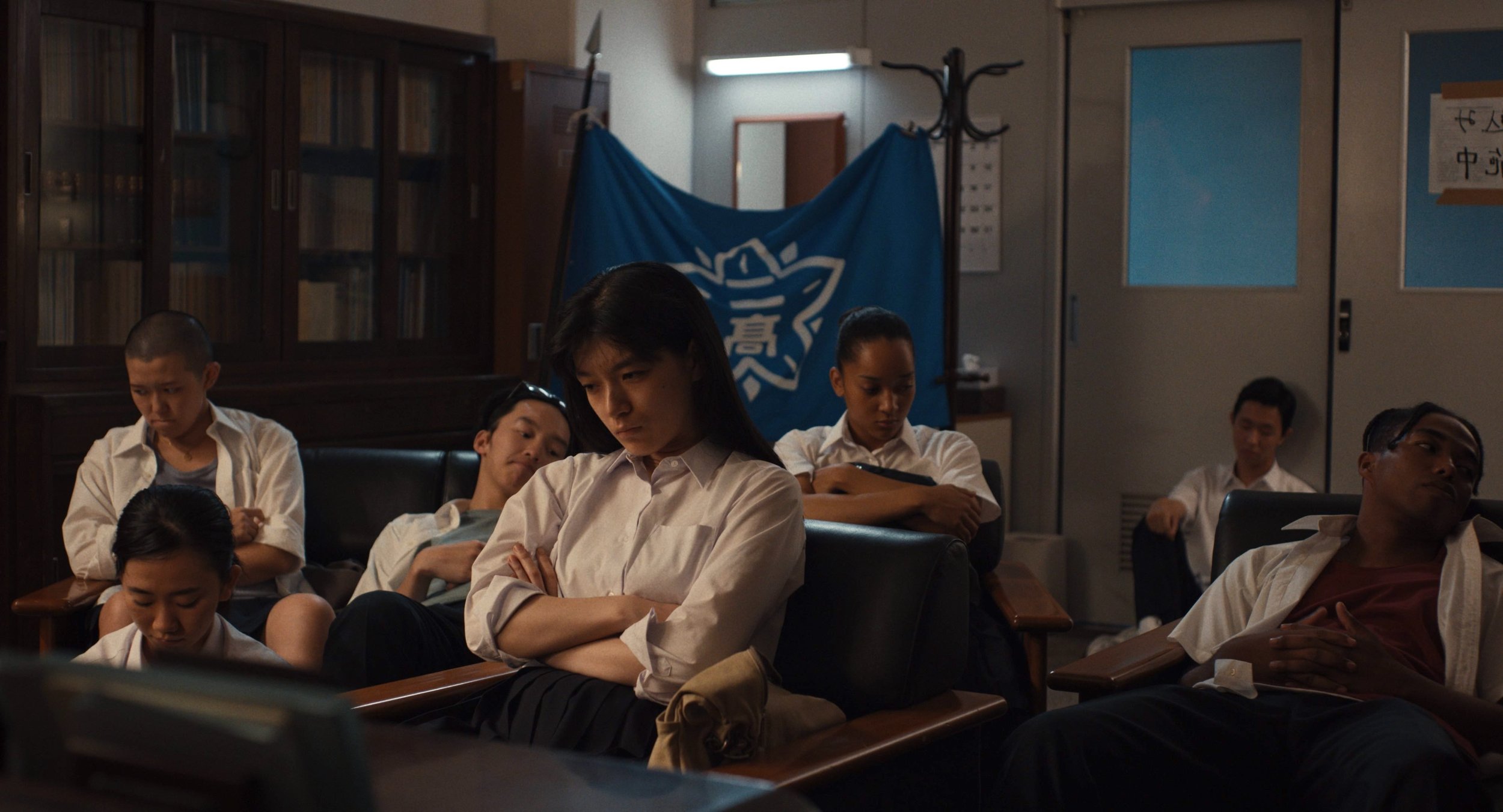‘End’ Times
Debuting feature director Neo Sora’s near-future cautionary tale set in “Japan” is stylish and substantive.
HaPPYEND
Director: Neo Sora • Writer: Neo Sora
Starring: Hayato Kurihara, Yukito Hidaka, Yuta Hayashi, Shina Peng, Arazi, Shiro Sano
Japan / USA • 1hr 53mins
Opens Hong Kong Jan 23 • IIA
Grade: B+
Dystopian science fiction doesn’t need to look like a dystopia; the ashy, grey, rubbly post-apocalypse isn’t the only version of dystopia. It’s obvious from the hellscape we’re currently living in that it can look very much the way it does now. And if ever there was a location that, from the right angle, looked like the future it’s Japan, bless its heart.
In a very near-future Tokyo (here played by Kobe), five music-obsessed high school friends on the verge of graduation are compelled to grow up in the shadow of an increasingly fascist prime minister. We meet the quintet as they try to weasel their way into a DJ show at a club. Among them are the relatively privileged Yuta (Hayato Kurihara), himself a budding DJ, and his best mate, Korean-Japanese Kou (Yukito Hidaka). Also along for the ride are the sartorially rebellious Ataro (Yuta Hayashi), and African-Japanese Tomu (Arazi) and Chinese-Japanese Ming (Shina Peng) – neither of whom, along with Kou, could possibly have any fears under paranoid, authoritarian rule, right? The group’s last year at school is defined by the looming threat of a massive earthquake; phone alerts to pre-shocks seem to come daily, and that gives the government all the excuse it needs to expand its “emergency” powers and militarise the police because earthquakes equal more crime. That also suits the school’s Principal Nagai (Shiro Sano) and his lackey Taira (Masaru Yahagi), who embrace a facial recognition security system after a prank involving Nagai’s car is deemed “terrorism.” Not having any of this is the agitating Fumi (Kilala Inori), a student activist who radicalises Kou. Kou’s radicalisation is part of the A-story that plays out against this backdrop, essentially a coming-of-age tale about friends staring down the barrel of an uncertain future and trying to figure out who they are.
Like The Handmaid’s Tale or Never Let Me Go (the books) Happyend is less straight sci-fi than speculative fiction, in this case a cautionary tale about an emerging surveillance state, restricted freedoms and escape into and resistance through, music. Writer-director Neo Sora broke out in 2023 with the lush, immersive Ryuichi Sakamoto: Opus, a doc about his father’s final performance. Yeah. Major nepo baby right here – to address the proverbial elephant. It’s okay for the Kwoks, Chengs and Waltons of the world to go into the family business but heaven forbid an actor or director do so. That non-controversy aside, it makes perfect sense for Sora to pivot the story on the kids’ interest in music, and for their music room to play a major role in the narrative. The opening DJ set is raided by the police and the school’s music room is dismantled because it’s a threat. These are both places where kids hang out and get crazy ideas in their heads about doing something to fix the shitty world they live in. Happyend’s various coming-of-ages happen in relation to radicalisation in the face of authoritarianism and the usual bullshit excuses authoritarians like to use: that they’re simply ensuring our collective safety, security and economic prosperity. Or at least the safety, security and economic prosperity of the right people.
Despite the heady (not very) sub-text the movie is still about how all these things impact the five friends, their dynamic and their outlooks for the future. Kou grows frustrated by Yuta’s passive party boy obliviousness, summed up when he cracks, “The world is over. Why not have a good time?” Kou is an immediate suspect for anything that goes awry at the school because Korean, something Yuta doesn’t really “get”. Kou, Tomu and Ming all feel their outsider status more intensely as the Japanese PM exerts more control and sows fear, neighbourhood watch groups go all-in on the paranoia, and Okada (Ayumu Nakajima, Anita), the students’ one teacher openly supportive of their protests and criticisms, is summarily removed from his job without explanation. This is all very familiar these days.
Long story short Happyend has plenty on its mind and some amazing visual storytelling to express those ideas with, thanks in part to Sora’s eye for composition within the futuristic cityscape and DOP Bill Kirstein’s elegant cinematography, as well as the mostly unknown cast’s naturalistic and believable performances. But though the script is loaded with graceful little moments – the sushi Nagai orders during a sit-in says so, so much – and evocative micro-aggressions it has its creaks. Music, so heavily emphasised in the early goings, never really plays a key role in the story’s resolution, and Tomu, Ming and Ataro are slightly underwritten. Yeah, yeah. The focus is Kou and Yuta, but that doesn’t mean the other characters should be total cyphers. But those are fairly minor complaints in a resonant, thought-provoking if totally unsubtle debut that respects the “picture” part of motion picture more than most.



